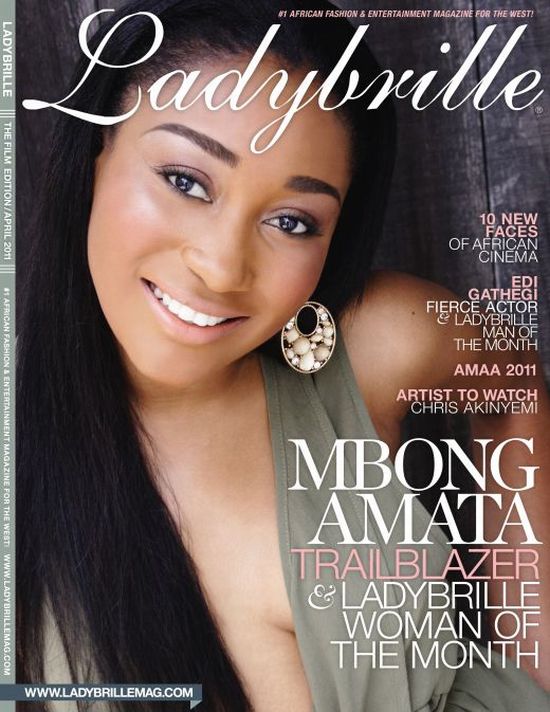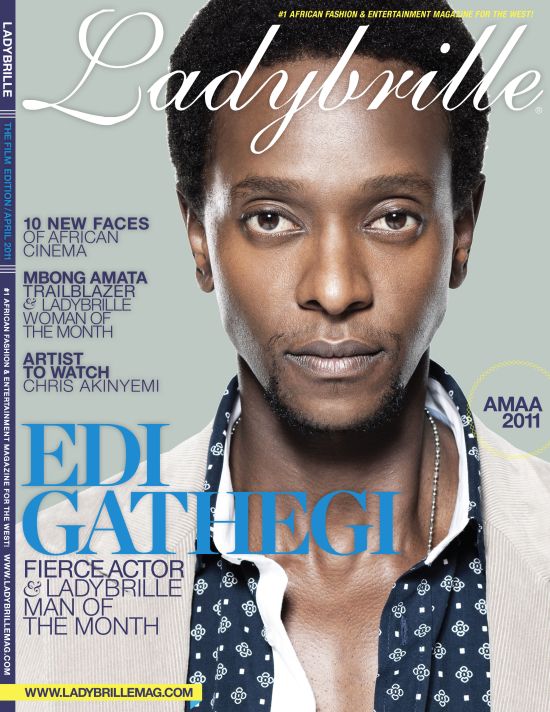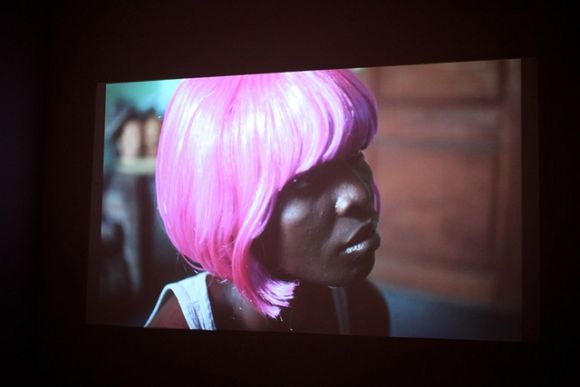 Happy New Month Ladybrille Readers!
Happy New Month Ladybrille Readers!
I am so happy writing you this note. Spring is here and it remains my favorite time of the year. Nope it has nothing to do with the fact that I have a birthday during Spring. *Coughs* (Mumbles) Cinco de Mayo. 🙂
I am happy because for us at Ladybrille, it is a month of celebration of the ongoing rebirth, re-growth and renewal in African cinema. It is a month where we really drive home the message on who the Africans you see at your grocery stores, banks, doctors’ offices, courtrooms, boardrooms, schools, colleges/universities etc. really are. We drive home this point through a month long homage to Africa’s cinema and industry professionals who excel at their crafts.
For decades, African Filmmakers were precluded from telling African stories to the world. In fact, in the French colonies during the colonial period, Africans were explicitly forbidden to be filmmakers. Western filmmakers were the only ones with the exclusive right to tell the African story. Needless to say, this resulted in a very negative and damaging image brainwashed to the world about Africans.
In 1955, Paulin Soumanou Vieyra a Benin educated filmmaker who made Senegal his home, made a major breakthrough circumventing the ban in a place like Paris to shoot a short film with his film colleagues titled Afrique Sur Seine. The film was considered the first film ever made by an African.
In the 1960s, Ousmane Sembène (Senegal) carried on with Vieyra’s efforts. By 1965, Sembène, known as the “Father of African Cinema,” debuted his film La Noire de (Black Girl) which became the first African film to win international recognition. Black girl was a story about a young African girl who leaves Senegal to work for a rich French couple in France, only to be maltreated. Sembène subsequently created even more films that celebrated as well as showed the shortcomings of the African culture and society. He died in 2007. Today, Senegal continues to be recognized as the foundation and birthplace of African cinema.
Nevertheless, over time, we have certainly seen the expansion and explosion of African films into English speaking African countries across the continent. A prominent film industry out of Africa which we regularly feature here on Ladybrillemag.com is Nollywood (Nigeria).
In our April Film Edition, we continue to celebrate the accomplishments of this young film industry through Nollywood Actress Mbong Amata, our Ladybrille Woman of the Month. Amata, in our exclusive, discusses the strides the industry has made but also pinpoints areas for improvements. Coming off the Africa Movie Academy Awards (AMAA aka Africa’s Oscars held in Nigeria), there is clearly a need for Nollywood to get past the fact that it is now the second largest producing film industry and instead focus on production quality and distribution of its films to earn its rightful place in Global cinema. To forge towards that reality, I am indeed delighted AMAA founder Peace Anyiam-Fiberesima is teaming up with like minded business individuals to solve Africa’s film distribution issues through her new company “Cinemart.” Cinemart plans to be a “game changer” with more cinemas and more screens across the country starting in Nigeria this summer. I can’t wait!
To be a game changer, being a master at what you do and striving for excellence is non-negotiable. I am delighted we get to introduce you to another game changer, this time in the USA, Hollywood Actor Edi Gathegi. For many, you know Edi as Laurent from Twilight. Soon, however, you will see him play the mutant Darwin in “X-Men: First Class.” Gathegi gives an indepth exclusive interview to Ladybrille Magazine on his background, his work ethic, his passion for acting, how he straddles the world of being African and American; why he has been able to snag roles that many want even though he is still a new comer in Hollywood; and Gathegi offers timeless tips and inspiration for future actors.
In summary, I hope you stay connected with us, all month long, so you can enjoy a brilliant month full of films/film trailers, film events, festivals, television personalities and shows from across Africa and the Diaspora right here on Ladybrillemag.com.
Don’t forget to “Like” our page, subscribe to our newsletter and tell a friend about us.
Why? Need we state the obvious? Africa has never looked so cool and sexy, courtesy of Ladybrille Magazine. 🙂
Have a brilliant April!
Yours truly,
([email protected])
Uduak Oduok, Esq.
Editor-in-Chief
www.ladybrillemag.com


Cover Photocredits:
MBONG Amata
Kem Anyanwu/Photomyface.com
Make up by Veleta Dacosta
EDI GATHEGI
Frankie Batista
Founded in 2007, Ladybrille® Magazine is a California based pioneer digital publication demystifying the image of Africans in the west through contemporary African fashion and celebrating the brilliant woman in business and leadership, with an emphasis on the African woman in the diaspora. Our coverage includes stories on capital, access to markets, expertise, hiring and retention, sales, marketing, and promotions.





